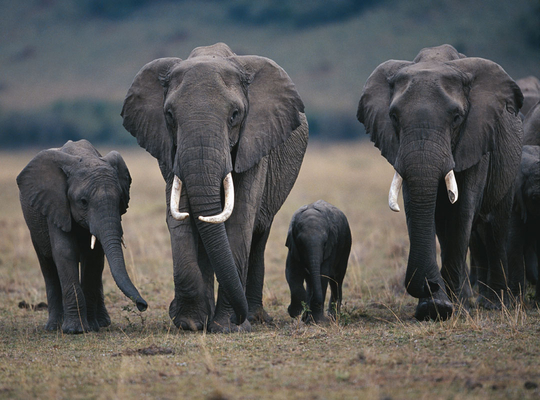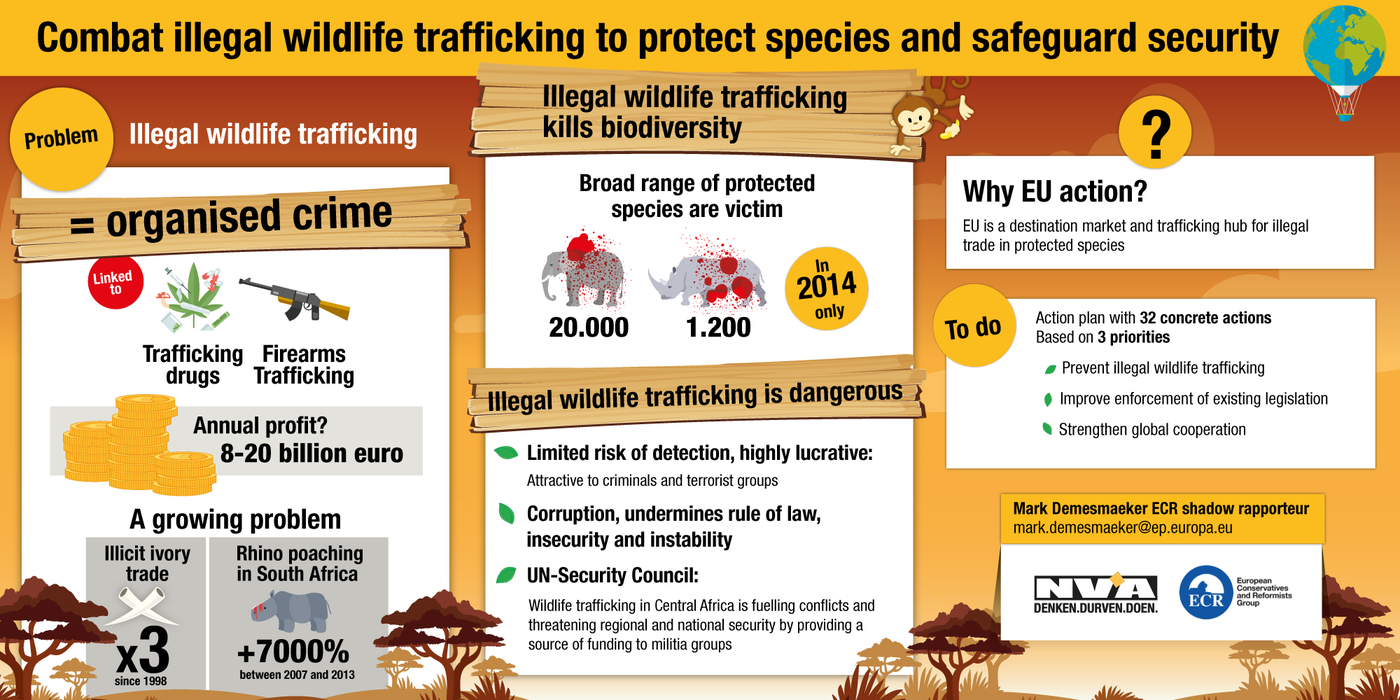You are here
EU to crack down hard on illegal trade in animals

The Environment (ENVI) Committee of the European Parliament has accepted a resolution to crack down hard on the illegal trade in wild animals and plants. That European Action Plan brings three priorities to the fore: preventing illegal trade, upholding the existing legislation better and strengthening global cooperation. “We are talking about one of the biggest forms of organised crime in the world,” says MEP Mark Demesmaeker, who co-negotiated the text. “And what’s more, that illegal trade is still growing spectacularly.”
“The illegal trade in wild animals and plants earns criminal organisations billions of euros every year, is connected to drugs and arms trafficking and finances militias and terrorist organisations. So these are practices which are not only fatal for a great number of protected species, but which also lead to insecurity and instability, in Central Africa for example,” Mark Demesmaeker explains. “That’s also why we are emphatically requesting the EU and the Member States to carry out this action plan in full by 2020. After all, the EU is not only a destination market, it also operates as a hub for that trade.”
Prevention
In the field of prevention, the ENVI Committee is calling for concrete actions to shut down the demand for the products of illegal trade, to increase awareness of the issue and to fight corruption. “I am very pleased that my proposals for a European ban on the trade in ivory and stricter rules for hunting trophies have been accepted,” says Mark Demesmaeker. His proposal for a so-called positive list for exotic animals also gathered wide support. Such a document, which clearly lists the animals that you are permitted to keep as a private individual, has existed for a considerable time now in Belgium, and is an example that deserves repeating within the EU.
Implementing, upholding and monitoring
“The implementing, upholding and monitoring of existing regulations can also be done a great deal more effectively,” says Mark Demesmaeker, who specifically emphasises the need for a better exchange of data, for example via Europol. In addition, Europe must look at whether it is worth supplementing current regulations. Guidelines also need introducing for tackling illegal trade on the internet. Finally, Mark Demesmaeker advocates that the fight against this illegal trade should be integrated into trade agreements with the countries in question.


